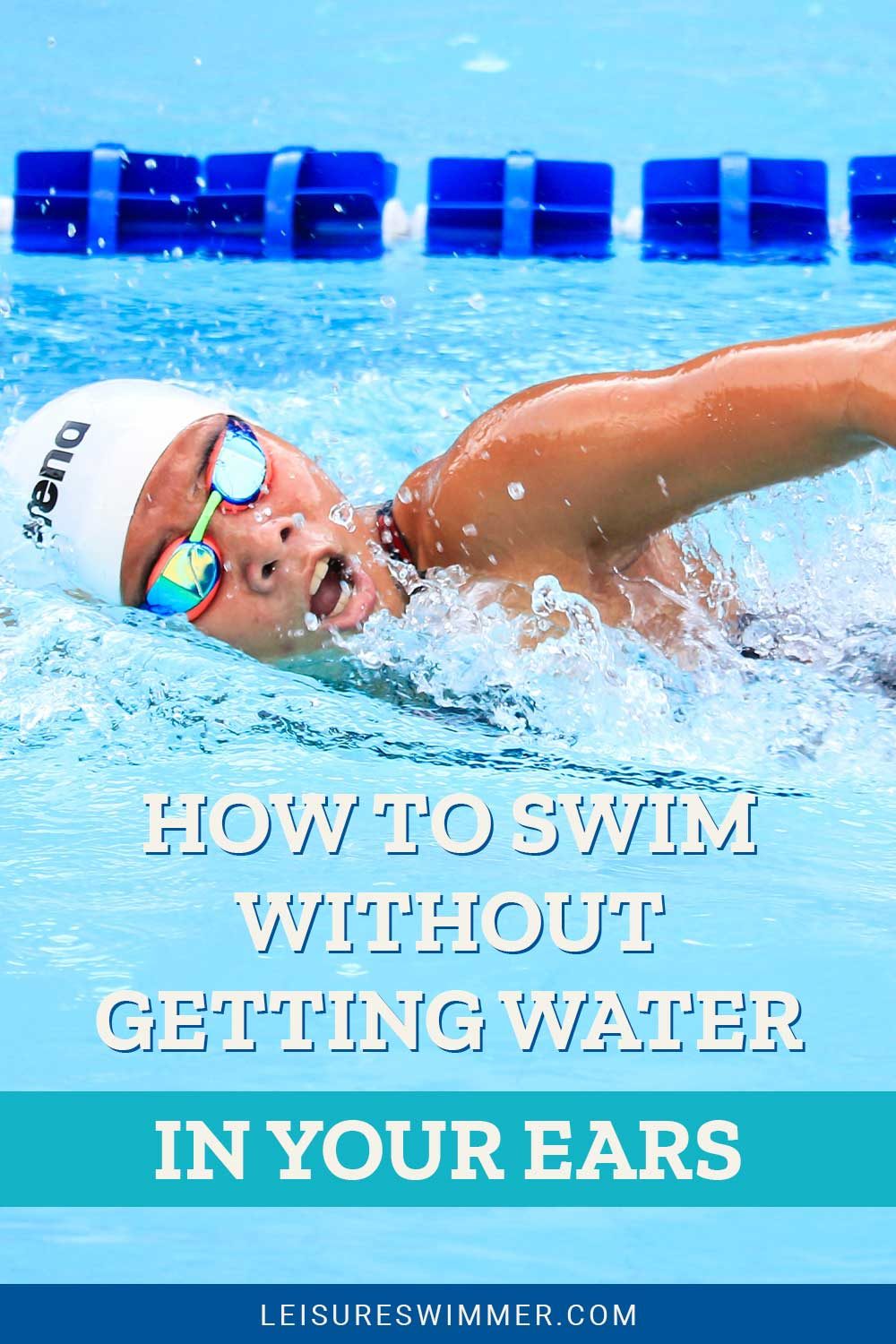How To Swim Without Getting Water In Your Ears
We may earn commissions for purchases made through links on our site. Learn more on our about us page.
There are going to be some simple techniques that can help a swimmer avoid getting water in their ears.
Of course, the simplest solution is to keep your head above water; even when swimming, a breaststroke or frog kick-like swimming stroke will help keep the ears out from being underwater.
This does not mean, however, that no equipment or swimming cap technology will effectively create a barrier of protection for the inner ear.
Another tidbit to keep in mind is to keep your head vertical and not turn your head underwater, ears facing up, which will avoid any gravity-driven pull into the ear canal.

Do Swim Caps Keep Water out of Your Ears?
When worn correctly, swimming caps can effectively give speed to a person in the water and protect the eardrums from the rush of water.
Swim caps are made of a tightly fitted, skin tight material from silicone, latex, or lycra and are designed to fit on the head during recreation and competitive situations.
When watching national or international competitions, viewers will see that all the swimmers will wear a swimming cap to do more than keep water out of the ears. Though technically, that is what they are designed for as well.

Will a Wetsuit Hood Help You?
There are going to be many different types and styles of wet suit hoodies and caps. To answer the question, a wetsuit hood will, in effect, cover the ears in a watertight seal, primarily if goggles are used to hold the material in place.
There will be hoods attached to the wetsuit as a whole piece of equipment, while other designs will have a separate cap or balaclava-like head garment. Each of these will be able to keep water out of the ear while swimming and performing any underwater activities.
Do Earplugs Help?
There are specially designed earplugs for underwater exploration. They are mostly made with a similar silicone-based polymer that will create an effective seal when under the pressure of the waterways.
They work like any other ear plug; a user must carefully place it in the ear canal and create an airtight seal.
This will prevent any water from entering the ear canal, which is the desired effect for the swimmer discussed in this article. Using these and a swimming cap, either wetsuit or athletic pool style, will possibly provide the double-layer protection required for specific individuals.
How do Olympic Swimmers Keep Water out of Their Ears?
The key is to not solely rely on equipment like a swimming cap to keep water away from the ear, and it is highly recommended that an individual purchase and utilize swimming earplugs.
Olympic athletes can be seen putting in what looks like earbuds designed to play music when these are professional-grade earplugs.
Using the double-up method, most of the time, the combination of a swimming cap with goggles keeping everything secure and ear plugs will help professional swimmers avoid the dreaded swimmer’s ear and aquatic afflictions from having water enter the ear canal.
Do Swimming Ear Bands Work?
Another feasible idea for an ear cover is swimming ear bands; they look like a headband but are designed for the pool.
Though not a full-face mask or balaclava-type product, the headband can hold earplugs in place, which would bode well for keeping water out of the kids, or spouses’ ears.
To answer the question, yes, most of the time, a swimming headband will be enough to keep the majority of water out of the ear canal of the wearer.
The product was designed to protect the ears from getting too much water in them and causing potentially devastating damage to the ear canal.
Final Thoughts on How to Swim Without Getting Water in your Ears
There are simple natural ways to keep water out of the ear canal, most of which require staying out of the water or keeping one’s head above water.
If these are not options, consider getting a wet suit with a hood or swimming cap or swimming headband with a pair of underwater earplugs.
Therefore, in doing so, a swimmer will be protecting their inner ear and other audio-sensitive organs there within. It only takes a small amount of pressure to pop an eardrum and a tiny sharp object floating around in the water to do the same thing.


